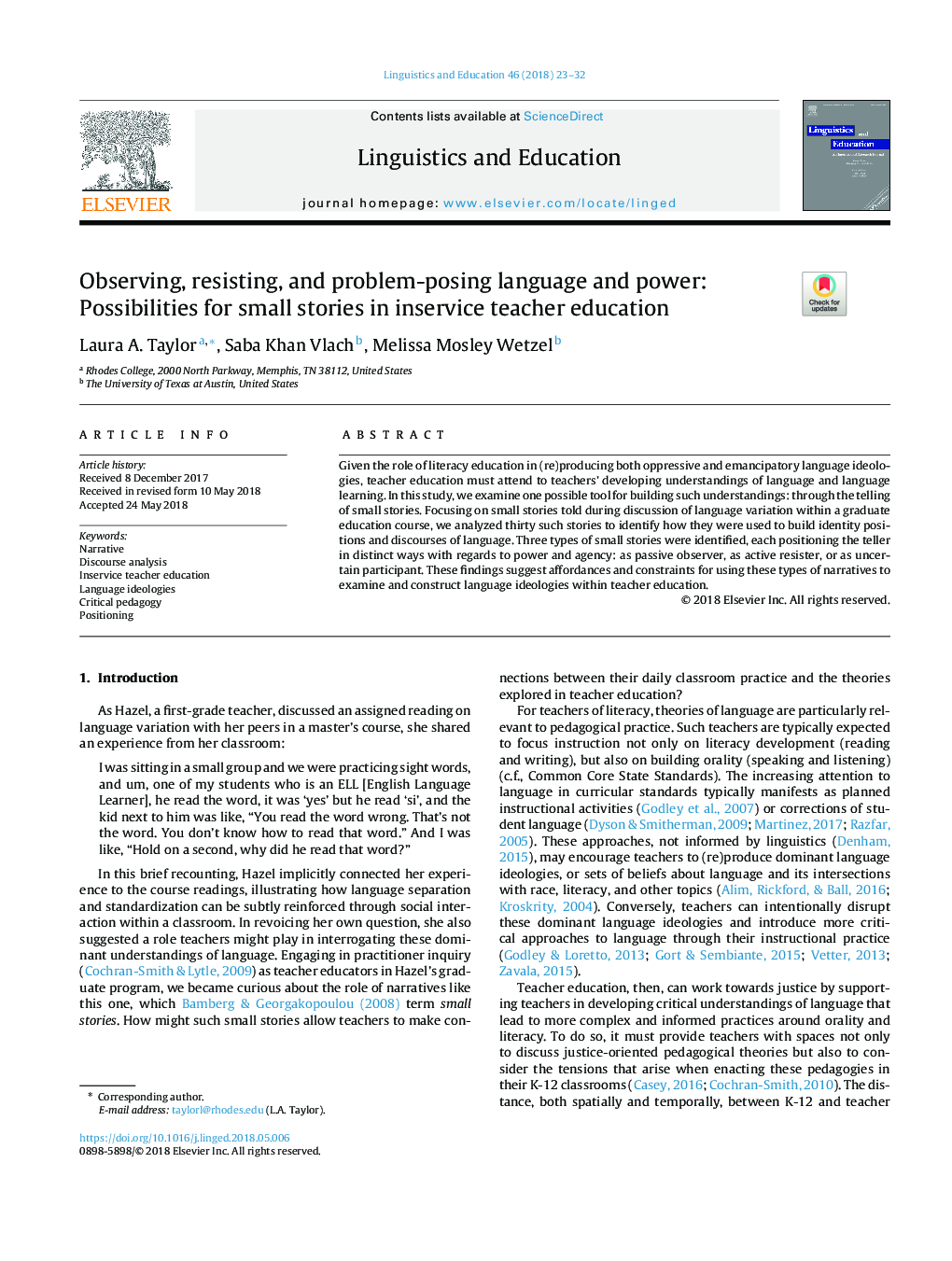| Article ID | Journal | Published Year | Pages | File Type |
|---|---|---|---|---|
| 6845885 | Linguistics and Education | 2018 | 10 Pages |
Abstract
Given the role of literacy education in (re)producing both oppressive and emancipatory language ideologies, teacher education must attend to teachers' developing understandings of language and language learning. In this study, we examine one possible tool for building such understandings: through the telling of small stories. Focusing on small stories told during discussion of language variation within a graduate education course, we analyzed thirty such stories to identify how they were used to build identity positions and discourses of language. Three types of small stories were identified, each positioning the teller in distinct ways with regards to power and agency: as passive observer, as active resister, or as uncertain participant. These findings suggest affordances and constraints for using these types of narratives to examine and construct language ideologies within teacher education.
Keywords
Related Topics
Social Sciences and Humanities
Arts and Humanities
Language and Linguistics
Authors
Laura A. Taylor, Saba Khan Vlach, Melissa Mosley Wetzel,
